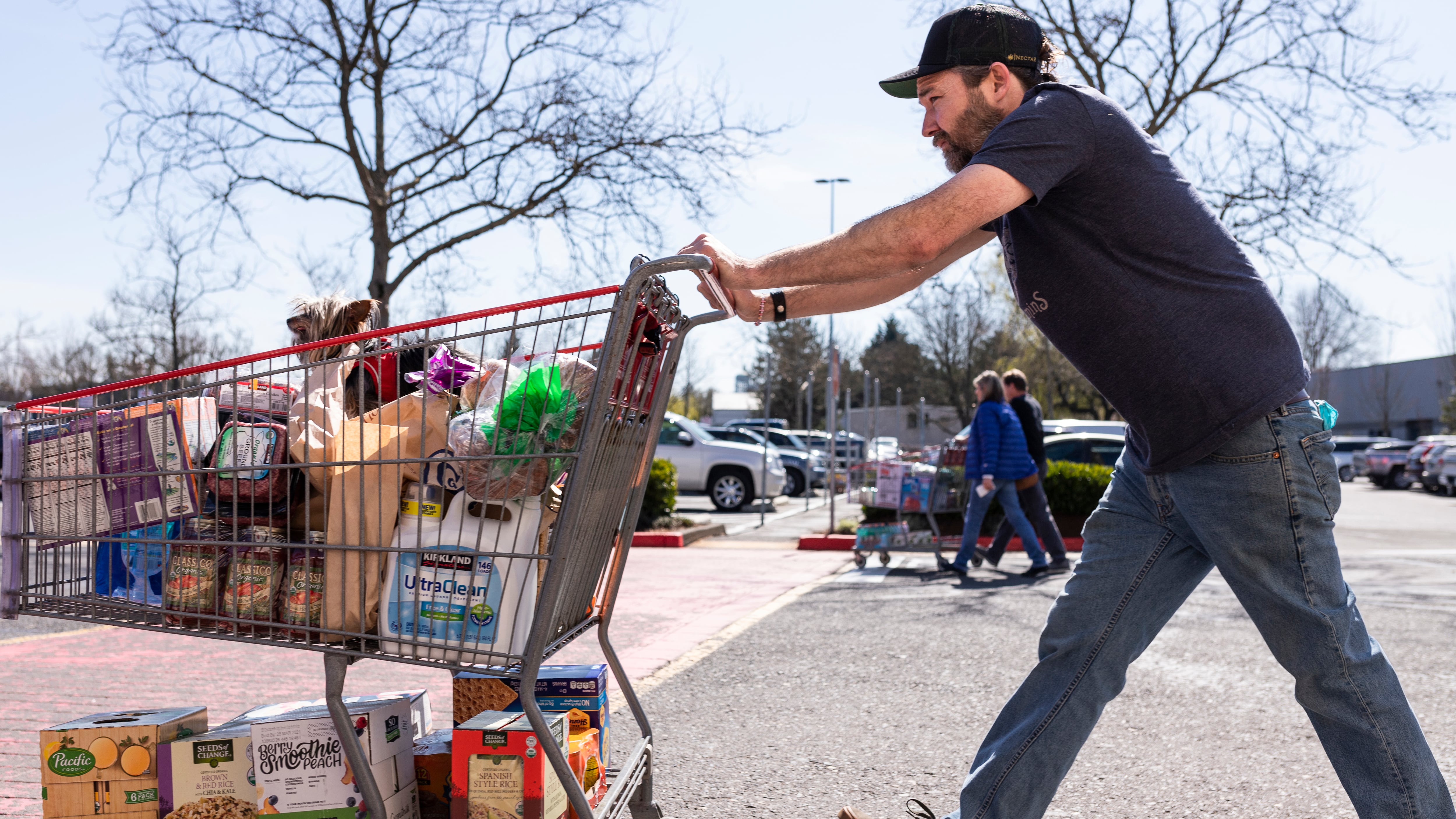For the first time in recent memory, a segment of Portland-area voters has told pollsters that homelessness wasn’t their top concern.
A phone and text survey conducted by Portland firm DHM Research in December found that voters across the metro region continued to name homelessness as their foremost worry, as they have for the past eight years. But when voters were read a list of problems, people living in the suburbs surrounding Portland expressed more intense concern about the cost of living than homelessness.
Within Portland city limits, homelessness remained the top worry, with 74% of voters expressing high concern and just 52% citing cost of living as a serious worry. But in the areas of Clackamas, Multnomah and Washington counties that ring the city, cost of living outpaced homelessness 64% to 59%.
DHM pollster John Horvick says the shift was driven by voters in Clackamas County, where concern about cost of living increased by 23% over four years.
“Why Clackamas County? It really appears to be partisanship,” Horvick tells WW. “Republicans responded differently to inflation than Democrats did. They soured on the economy. The added intensity in Clackamas County is at least partly driven by, there’s more Republicans out there.”
The survey of 700 registered voters, conducted on behalf of the Portland Metro Chamber shortly before Christmas, showed a modest uptick in optimism about Portland’s direction, even as alarm about personal finances increased.
Some 59% of metro-area voters said quality of life was worsening—while that still constitutes more than half, it’s a steep decline from 2021, when 88% of voters felt that way. (The optimism was driven by Washington County voters, 43% of whom said their county was on the right track. Just 20% of Multnomah County voters did.)
“There is a sense that things are getting better—better relative to something that was really terrible,” Horvick says. “This is totally anecdotal, but I do think post-election, in the city of Portland, there’s a sense we’ve turned a corner. How long that lasts, who knows?”
But more than 4 in 10 voters said their household was worse off economically than it was two years ago. Only 18% said they were better off. Another 37% said their finances were about the same.
The percentage of voters who felt their economic situation was getting worse has increased along with inflation, starting in 2021. “There’s no doubt,” Horvick says, “inflation affected people.”
Those are mixed omens for an effort by regional government Metro to extend the supportive housing services tax for 20 years, lower the tax rate on high-income households, index it to inflation, and allow the tax dollars to be used to build affordable housing. The Metro Council recently delayed sending a measure to the ballot.
The Portland Metro Chamber (which is the region’s chamber of commerce and a different entity from the Metro government) has supported the modifications to the tax. The poll asked voters what they thought of using SHS tax dollars to build affordable housing—and found a soft majority in support, at 55%. It did not ask about a 20-year extension.
